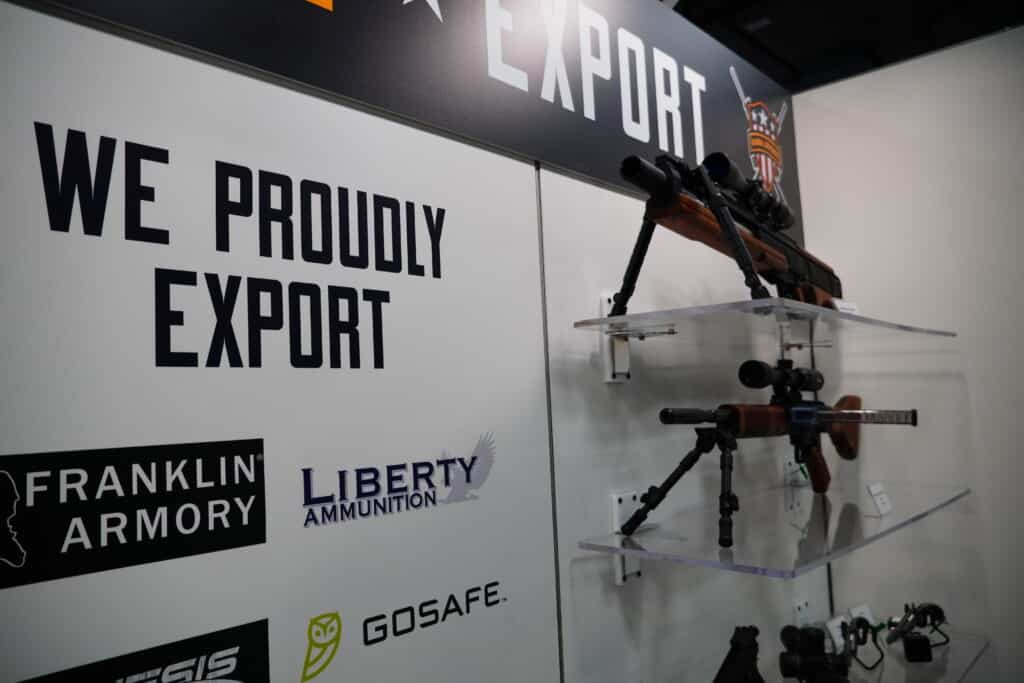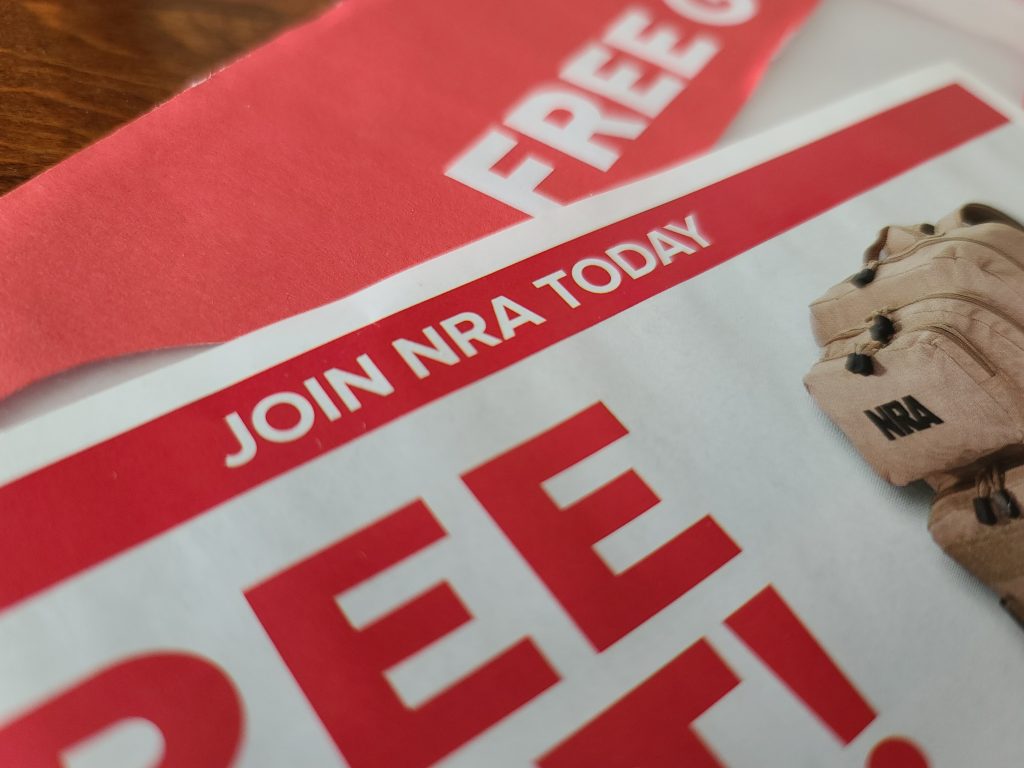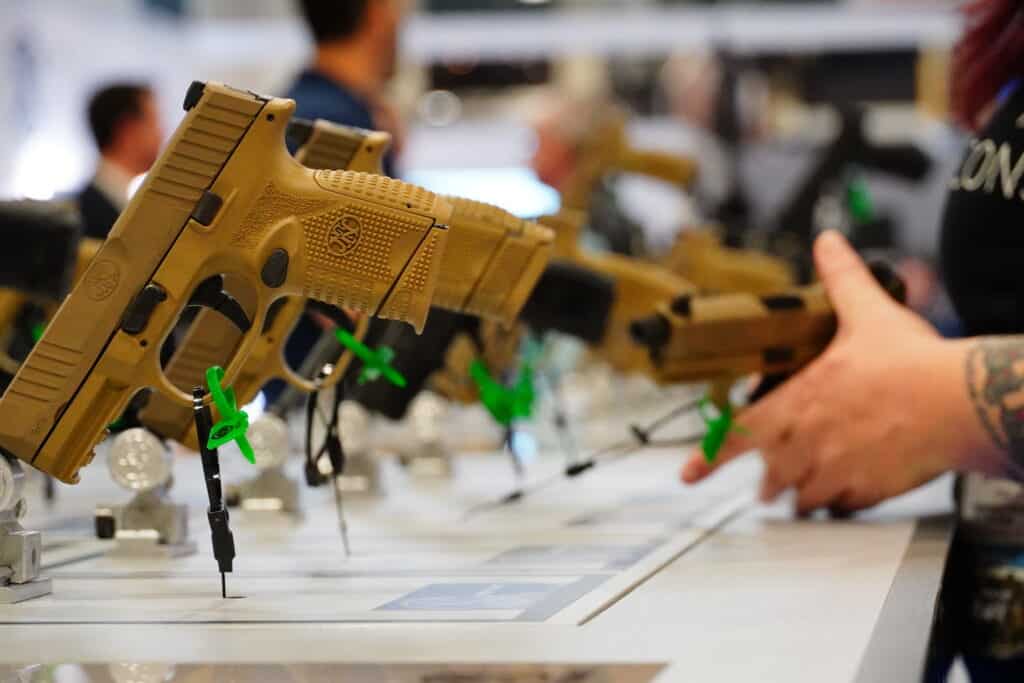This week, another federal gun rule that we first published a leaked draft of officially came to light. The Commerce Department dropped its final rule on firearm export licenses. It adds new restrictions to the export process and even forces American companies to collect passports or IDs of foreigners they export guns to, including in allied nations like Israel and Ukraine.
We also saw NRA Members vote a slate of reform candidates onto the board of directors after a jury found the group failed to safeguard its charitable assets. I take a look at what that all might mean in a piece for Reload Members.
This week also gave us two surprising developments. First, Maine’s democratic governor vetoed one of the gun bills passed in the wake of the state’s worst mass shooting. Then, a Fifth Circuit panel with two Republican appointees upheld “enhanced” background checks for 18-to-20-year-old gun buyers.
Plus, law professor Jonathan Adler examines the latest Supreme Court gun case on the podcast. And Contributing Writer Jake Foglmen explains the latest trend in state-level gun-rights legislation.

Biden Admin to Impose Civilian Gun Restrictions on Israelis, Ukrainans Using American Exports
By Stephen Gutowski
The Commerce Department is cracking down on civilian firearms exports, including to American allies like Israel and Ukraine.
The Biden Administration published the final version of its new gun export rule on Tuesday. The changes in the final proposal mirror many of those in a leaked draft published exclusively by The Reload in December 2023. One of the included restrictions is a requirement that American exporters collect passports or national IDs from any individual buyer they ship certain semi-automatic guns to in most countries, including Israel and Ukraine.

Analysis: A Sign NRA Members Are Fed Up? [Member Exclusive]
By Stephen Gutowski
The National Rifle Association’s board election results came in this week, and they provide pretty good evidence for how the group’s membership is reacting to its current ordeal.
Every candidate who explicitly ran on replacing current leadership and instituting significant internal reforms was elected, according to results published in the NRA’s American Rifleman magazine. Two of the top three vote-getters were reform candidates. The same can be said for three of the top five and four of the top seven. The final board candidate who ran on instituting internal reforms, who is a relative newcomer to NRA activism, also won a seat in the top 16 of the 26 who were elected.
NRA voters also approved the creation of a new chief compliance officer position.
The reformers, who ran as a block on a common campaign platform, will be sworn in at the group’s next board meeting later this month. The outcome suggests many NRA members are on board with the changes the reformers want to impose. It could convince other board members to join the dissidents’ cause and alter the course of the organization in the wake of a years-long corruption scandal that recently culminated in the resignation of longtime CEO Wayne LaPierre and a jury finding that the group didn’t safeguard its charitable assets.
If you’re a Reload Member, click here to read. If not, join today for exclusive access!

Maine Governor Allows Waiting Periods to Become Law, Vetoes Bump Stock Ban
By Jake Fogleman
The Governor’s action on a final suite of gun-control bills has left gun owners in the Pine Tree State with a mixed bag.
Maine Governor Janet Mills (D.) elected to allow LD 2238, which requires a 72-hour waiting period for all gun sales, to become law without her signature on Monday. However, Mills vetoed a separate measure aimed at banning bump stocks. That bill would have amended the state’s ban on machine guns to include any semi-automatic firearm that has been modified “to materially increase its rate of fire.”
Mills’ actions on the two bills provide clarity on the state’s political response to last October’s mass shooting in Lewiston—the deadliest in Maine’s history. They come on the heels of Mills’ signature on her own legislative package last week, which implemented background check requirements for advertised private gun sales and streamlined the process for police to initiate the state’s “yellow flag” confiscation law–a process police failed to use ahead of the attack.

Fifth Circuit Upholds ‘Enhanced’ Gun Background Checks for Young Adults
By Jake Fogleman
Placing additional background check requirements and delays on 18-20-year-old gun buyers does not run afoul of the Second Amendment, a federal appeals court ruled Friday.
A three-judge panel for the Fifth Circuit Court of Appeals unanimously ruled against challengers who took issue with the “enhanced” background check provisions of the 2022 Bipartisan Safer Communities Act (BSCA). The panel found that the plaintiffs failed to show a likelihood of succeeding on the merits of their constitutional claims and declined to issue an injunction against the law.
“The [Second Amendment’s] plain text covers plaintiffs’ right ‘to keep and bear arms,’” Judge Jerry E. Smith wrote in McRorey v. Garland. “And on its face ‘keep and bear’ does not include purchase—let alone without background check. That is so in either the contemporary or the Founding-era context.”
Click here to continue reading.
Podcast: Law Professor Jonathan Adler on the Supreme Court’s New ‘Ghost Gun’ Case
By Stephen Gutowski
The Supreme Court has decided to take up another gun case. Although, it’s another one that doesn’t touch on the Second Amendment. This time, the Court will decide if the ATF’s rule restricting unfinished frames and receivers is an unlawful overreach of the agency’s power.
Jonathan Adler, a law professor at Case Western Reserve University, joins the show to give us his insight into this case and the Court’s recent uptick in gun cases. You can listen to the show on your favorite podcasting app or by clicking here. Video of the episode is available on our YouTube channel.
Plus, on the news update, Contributing Writer Jake Fogleman and I discuss an NRA board member pitching Donald Trump Jr. to become the group’s new leader. We also talk about FEC records showing the group continues to be outraised by gun-control advocates, the ongoing permitless carry push in North Carolina, and the continued spread of gun store MCC bans in red states. Audio is here. Video is here.

Analysis: Nixing Credit Card Codes is the Latest Gun-Rights Policy Trend [Member Exclusive]
By Jake Fogleman
Financial privacy measures have quickly become one of the fastest-spreading policy successes of the gun-rights movement.
Just this past week alone, three more Republican-led states enacted laws restricting the use of specialty merchant category codes (MCCs) for gun and ammunition stores. The Governors of Iowa, Tennessee, and Georgia signed bills with nearly identical language prohibiting credit and debit card companies from using any MCC that “distinguishes a firearms retailer from a general merchandise retailer or a sporting goods retailer.” The laws also contain provisions prohibiting financial institutions from discriminating against lawful gun businesses and from disclosing transaction data in most instances.
The total number of states with similar laws on the books now stands at 14 (Kentucky, Wyoming, Indiana, Utah, Florida, Idaho, Mississippi, Montana, North Dakota, Texas, and West Virginia have all adopted similar laws). Just two years ago, that number was zero.
If you’re a Reload Member, click here to read more. If not, buy a membership today for exclusive access to this piece and hundreds of others!
Outside The Reload
Donald Trump Could Turn on Gun Activists, Too | The Dispatch | By Stephen Gutowski
2024 NRA Board of Directors Election Results | American Rifleman
The giant mental-health loophole in Wyoming’s gun laws | WyoFile | By Madelyn Beck
Legislation banning guns on college campuses advances in Delaware | WHYY | By Sarah Mueller
Massachusetts Dems Face Pushback from Black Gun Owners | Bearing Arms | By Cam Edwards
That’s it for this week in guns.
I’ll see you all next week.
Thanks,
Stephen Gutowski
Founder
The Reload






